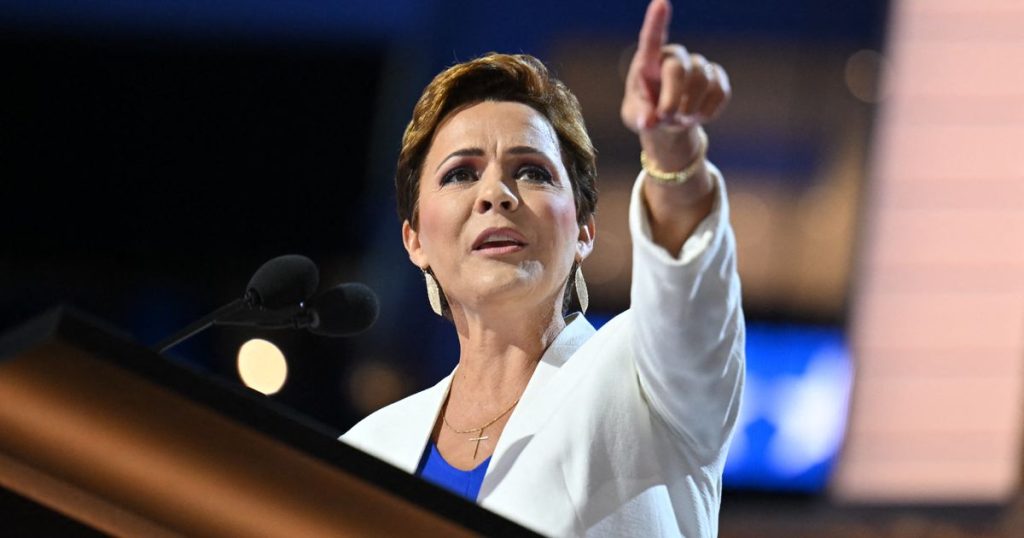Kari Lake emerged victorious in the Republican primary for U.S. Senate in Arizona, securing a spot in the November general election against Democratic Rep. Ruben Gallego. Lake, a former news anchor, aligns herself with the hard-right Republican ideology similar to that of former President Donald Trump. She has been vocal in perpetuating falsehoods about the 2020 election being stolen and has done the same regarding her own unsuccessful campaign for governor in 2022. Despite Trump’s endorsement and ongoing litigation surrounding allegations of defamation against Maricopa County Recorder Stephen Richer, Lake managed to secure the party nomination.
Lake’s victory over Republican challenger Mark Lamb in the primary was widely anticipated, with the focus shifting to the margin of her win and her viability as a general-election candidate. Analysts believed Lake needed to earn at least 55% of the primary vote to demonstrate her ability to unite the state’s Republican Party against Gallego in November. However, in head-to-head polling, Gallego currently holds an advantage over Lake in the general election, even before Sen. Kyrsten Sinema announced her decision not to seek re-election. Lake’s brand of Trumpism, centered around election denial, border security concerns, and criticism of late Republican Sen. John McCain, may limit her appeal beyond a certain segment of Arizona’s Republican base.
Lake’s campaign has been marked by controversy, including her refusal to defend herself in a defamation lawsuit brought by Richer. Despite these challenges, Lake remains a staunch supporter of Trump and his policies, which resonate with a portion of Arizona’s GOP. However, her defeat in the 2022 gubernatorial race against Democrat Katie Hobbs underscored the limitations of her divisive approach. As the general election approaches, Lake will need to broaden her appeal beyond her base to secure a victory against Gallego.
For Lake to be successful in the general election, she will need to pivot from the divisive rhetoric of her primary campaign and present a more unified message to appeal to a wider range of Arizona voters. Gallego’s lead in current polling highlights the challenge Lake faces in convincing a broader audience of her candidacy. Her proximity to Trump, who remains a polarizing figure in American politics, may hinder her ability to broaden her appeal beyond staunch Republicans. However, Lake’s ability to mobilize the GOP base cannot be discounted, and the general election will test her capacity to transcend partisan divides and present a compelling vision for Arizona’s future.
As the U.S. Senate race in Arizona heats up, Lake’s confrontational style and alignment with Trump’s political ideology will be put to the test. She faces a formidable opponent in Gallego, who has secured the Democratic nomination unopposed. The November election will be a critical moment for Arizona voters to decide the direction of their representation in the Senate. Lake’s triumph in the primary sets the stage for a competitive and closely watched general election campaign that will shape the political landscape in Arizona for years to come.


